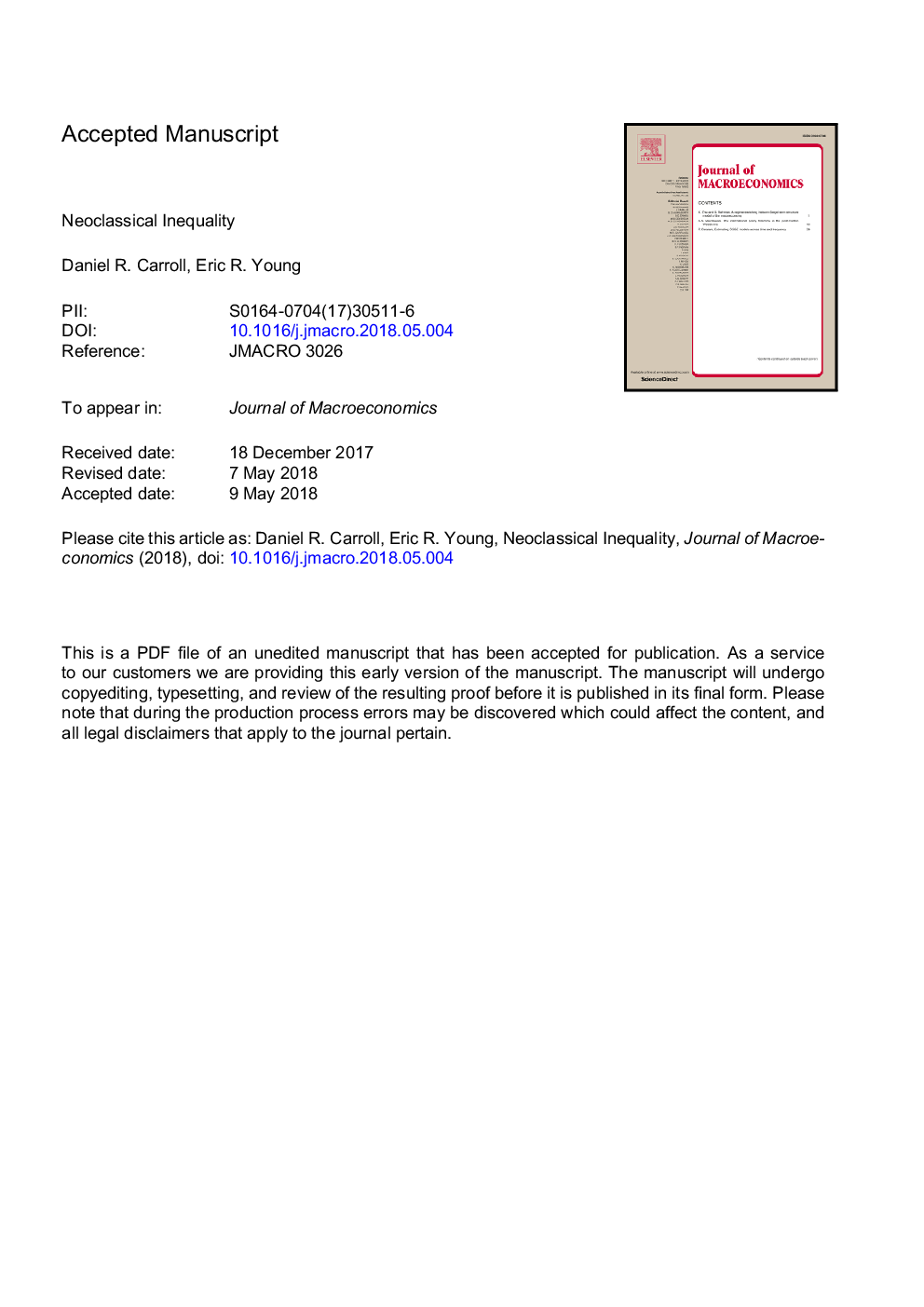| Article ID | Journal | Published Year | Pages | File Type |
|---|---|---|---|---|
| 7366534 | Journal of Macroeconomics | 2018 | 52 Pages |
Abstract
In a model with a worker-capitalist dichotomy, we show that the relationship between inequality (measured as a ratio of incomes for the two types) and growth is complicated; zero growth generally lowers inequality, except under extreme parameterizations. In particular, the elasticity of substitution between capital and labor in production needs to be substantially greater than one in order for income inequality be higher with zero growth, in fact higher than nearly all estimates. If this condition is not met, factor prices adjust strongly causing the fall in the return to capital (the rise in wages) to reduce income inequality. Our results extend to models with endogenous growth.
Related Topics
Social Sciences and Humanities
Economics, Econometrics and Finance
Economics and Econometrics
Authors
Daniel R. Carroll, Eric R. Young,
